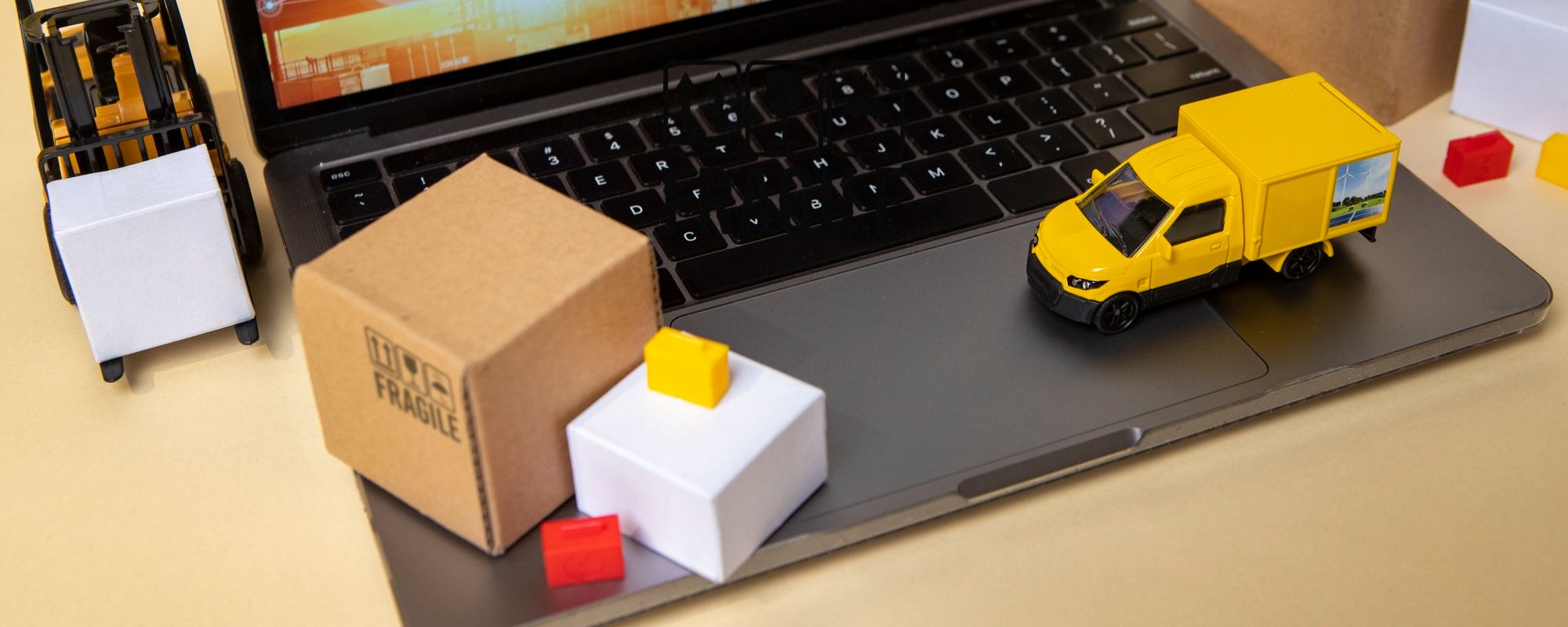The logistics and transportation industry is witnessing a significant transformation, driven by the rapid advancement in mobile technologies. Mobile apps are revolutionizing this sector, offering real-time visibility, improved efficiency, and enhanced customer experiences. In this article we will discuss about the future of logistics mobile app development sector.
Into the Future of Logistics Mobile App Development
As technology continues to evolve, logistics mobile applications are projected to revolutionize the logistics sector significantly. The industry is estimated to grow with a CAGR of 5.6% between 2023 to 2028.
- In the future, logistics apps will continue to facilitate communication between shippers and drivers, optimize routes, reduce costs, and increase efficiency.
- Logistics mobile apps will be integrated with AI and machine learning technologies to predict future trends, streamline operations, and provide real-time data for decision-making.
- Different types of logistics companies, including fleet management, on-demand logistics, warehouse apps, and tracking & forwarding apps, will continue to offer a range of services.
- Popular logistics apps like DHL Express, Uber Freight, and UPS Mobile might incorporate advanced features such as smart tracking, automated scheduling, and predictive analytics to improve their service offerings.
- Another critical aspect of the future of logistics app development is the focus on user experience and quality. As user expectations continue to evolve, developers will need to take into account factors such as simplicity, intuitiveness, and functionality.
- Apps that fail to consider the user experience, deliver quality, market themselves effectively, or provide post-release support risk falling behind in the competitive market.
The Role of Mobile Apps in the Logistics Industry
In today’s fast-paced business environment, mobile apps are becoming an essential tool for logistics companies to optimize their processes, reduce costs, and stay competitive. These apps are transforming every aspect of the logistics industry, from trucking and fleet management to warehouse operations and last-mile deliveries.
Real-Time Tracking and Visibility: One of the most crucial features of a logistics mobile app is its ability to provide real-time tracking and visibility of shipments, vehicles, and assets. This feature enables better coordination, optimized route planning, and proactive management of potential delays or disruptions.
Efficient Order Management: A well-designed logistics mobile app should include features for efficient order management. This involves order creation, tracking, and management. These features allow logistics companies to efficiently manage orders, assign shipments to carriers, track order status, and update customers in real-time.
Enhanced Communication and Collaboration: Seamless communication and collaboration among different stakeholders in the logistics ecosystem, such as shippers, carriers, drivers, and customers, is crucial. The app should have features like messaging, notifications, and document sharing to facilitate smooth communication and collaboration, reducing errors and improving operational efficiency.
Data-Driven Decision Making: A robust analytics and reporting module that provides insights and data-driven decision-making is critical. It should generate reports on key metrics such as delivery performance, transit times, and carrier performance, allowing users to analyze data and optimize logistics operations for better performance.

Benefits of Having a Logistics Mobile App for Your Business
The introduction of mobile apps in the logistics industry has brought several benefits for businesses. Here are some of the significant advantages:
Improved Operational Efficiency: A logistics app can streamline and automate various operational processes, such as order management, dispatching, tracking, and documentation, resulting in increased efficiency, reduced manual errors, and improved productivity.
Enhanced Visibility and Control: A logistics mobile app provides real-time tracking and visibility of shipments, vehicles, and assets, allowing you to have better control over your logistics operations.
Streamlined Communication and Collaboration: A logistics mobile app facilitates seamless communication and collaboration among various stakeholders in the logistics ecosystem. It enables in-app messaging, notifications, and document sharing, which reduces errors, delays, and miscommunications, leading to improved coordination and productivity.
Improved Customer Experience: A logistics mobile app can enhance the overall customer experience by providing real-time updates on shipment status, allowing customers to track their shipments, and enabling seamless communication with your team.
Competitive Advantage: Having a logistics mobile app can give your business a competitive advantage by offering superior visibility, efficiency, and customer experience compared to competitors who do not have a similar app.
Key Elements of a Successful Logistics Mobile App
From the user’s perspective, a successful logistics mobile app should have the following key elements:
User-Friendly Interface: The app should be easy to navigate, with a clear and concise layout that allows users to quickly and easily find the information they need. A user-friendly interface can help to increase user engagement and satisfaction, leading to a more successful logistics app overall.
Real-Time Tracking and Monitoring: With real-time tracking and monitoring, businesses can provide their customers with accurate information on the location of their packages, estimated delivery times, and any delays or issues that may arise.
Timely Notifications and Alerts: Timely notifications and alerts help businesses and users to stay proactive and make necessary adjustments to their logistics plans, ensuring smooth operations and timely deliveries.
Reliable and Secure Transactions: With the increasing number of online transactions, customers demand a highly secure and reliable payment system. It is essential to ensure that the app integrates with the best payment gateways and uses encryption techniques to secure the transactions.
Excellent Customer Support: Users should have easy access to customer support through various channels such as live chat, email, or phone, and receive prompt responses to their queries or issues.
Continuous Improvements and Upgrades: Regular updates and improvements can enhance the performance, reliability, and security of the app, ensuring smooth and efficient logistics operations for users.

Steps to Create a Great Logistics Mobile App
Establish Your Goals
For starters, you need to figure out who it is you’re making a transportation app for. There are two possible approaches to taking on the problem of app creation.
- Create a dedicated app for one’s own transportation company, in which the business’s fleet and drivers’ shifts may be monitored and individual customers’ shipments followed in real time.
- Goal of making money off of the app by offering it as a service to other logistics companies.
Know Your Audience
Knowing who you’re catering to is essential in the transportation industry. The time and money spent on fleet management software would be wasted without a solid concept.
However, as a logistics business owner, your ideal customers are those in the logistics and transportation industries. They are the ones you’ll need to win over by outlining all the ways your product or service can improve their lives.
Make a Checklist of the Features
There are several components to the logistics management system, and they can be broken down into three main sections.
- Admin Panel (Fleet management, driver, inventory, order, and payments)
- Customer App (Booking fleet, tracking orders, etc.)
- Driver App (Order details verification, address, navigation, etc)
Tech Stack Implementation
Developing a mobile app calls for a combination of technologies tailored to meet the unique needs of mobile apps. Some examples are:
- Operating Systems: Android, iOS, Windows
- App types: Native, Hybrid, and Web Applications
- Payment types: Card, PayPal, Stripe, Mobile Wallet, Cash on Delivery
- Database: MongoDB & SQL
- Cloud Storage: AWS or Google Cloud
Team Up with App Development Companies
Finally, you need to find a mobile app development company that you can trust and rely on. The company’s level of expertise and the number of transportation apps they developed are also important factors to consider.
Conclusion
As far as the end user goes, a good logistics app should ideally have features like real-time tracking and monitoring, streamlined communication, an intuitive UI, effective order management, and regular updates and enhancements.
If you’re looking for a trustworthy app development partner for your logistics business, Appscrip is the best option. The logistics business may benefit greatly from embracing the capabilities of custom mobile application development for logistics because it can lead to more simplified operations, greater efficiency, and improved customer satisfaction.










